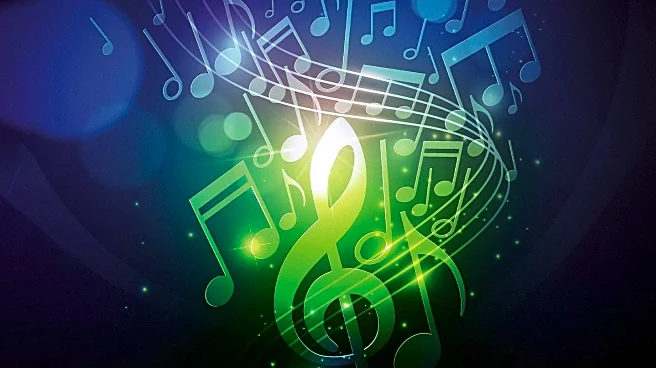What's Happening?
Daniel Levitin, a neuroscientist and musician, has been investigating the profound impact of music on the human brain. His latest book, 'I Heard There Was A Secret Chord: Music As Medicine,' delves into how music can serve as a therapeutic tool. Levitin's research suggests that music can significantly alter or reinforce our mental states, offering calming effects after stressful experiences or energizing us for social activities. The discussion on this topic was featured on The Metro, a program on WDET 101.9 FM, where Levitin shared insights into how music can be harnessed for healing purposes.
Why It's Important?
The exploration of music as a form of medicine is significant as it opens new avenues for non-invasive therapeutic practices. Music therapy could become an integral part of mental health treatment, providing an alternative or complement to traditional methods. This research could influence public health policies and encourage the integration of music therapy into healthcare systems, potentially benefiting individuals suffering from stress, anxiety, and other mental health issues. The broader acceptance of music therapy could lead to increased funding and research in this field, enhancing its efficacy and application.
What's Next?
Further research and clinical trials may be conducted to validate and expand upon Levitin's findings. Healthcare providers might begin to incorporate music therapy into treatment plans, especially for patients with mental health challenges. Additionally, public health campaigns could be launched to raise awareness about the benefits of music therapy, encouraging individuals to explore music as a personal wellness tool. The music industry might also see a shift, with artists and producers focusing on creating music specifically designed for therapeutic purposes.
Beyond the Headlines
The implications of music therapy extend beyond individual health benefits, potentially influencing cultural perceptions of music and its role in society. As music therapy gains recognition, it could lead to a broader understanding of the arts as essential components of holistic health and well-being. This shift might also impact educational curricula, with schools incorporating music therapy principles into their programs, fostering a generation that appreciates and utilizes music for personal and communal healing.











